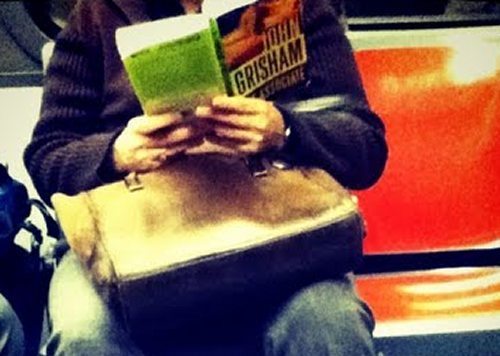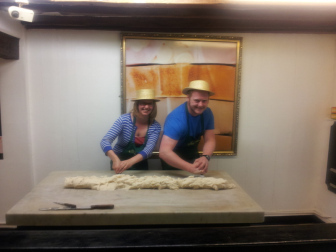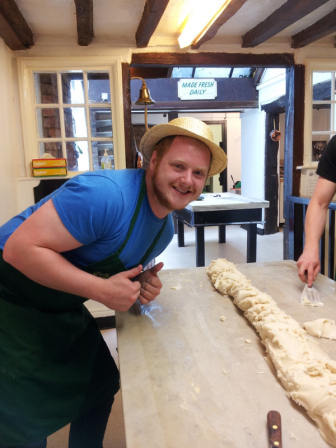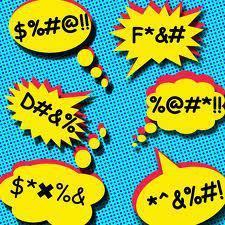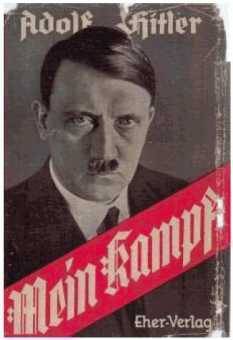Louise M.H. Miller's Blog, page 18
July 3, 2013
I Just Can’t Help Myself…
I don’t know why. Perhaps it’s the writer in me, the reader, the librarian or generally the nosey-parker. But wherever I am, whether it’s on a bus or train, Doctor’s waiting room or in a cafe, if I see someone reading a book I always try to see what it is they are reading.
It may be sort of a challenge for me, to see if I can recognise the book by its cover (which goes a long way towards the argument you can’t judge a book by its cover), or by a partial glimpse at the title, or even from the name of the author. If I get it right, it’s sort of like a little high-five to myself, a mini-victory. But if I can’t see probably or if I can’t work out what the book is it sort of bugs me.
It’s my little snippet of OCD. I can’t help it, Sometimes I don’t even know that I’m doing it. So if you see some crazy lady leaning over trying to spy what you are reading – it could be me. Are they many of us out there I wonder? It can’t be just me that has this…problem?
Filed under: Uncategorized Tagged: authors, book covers, libraries, reading, writing


July 1, 2013
Writer's conferences - are they worth it?
 Reblogged from jeanettevaughan:
Reblogged from jeanettevaughan:
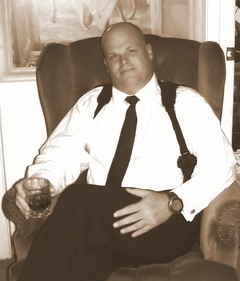
It doesn't take much time in the Indie publishing world to be confronted by scads of folks wanting your business. Cover art designers, book marketers, editors, small house Indie publishing services, tweeters, web designers. And let's not forget writer's conferences. Sheesh! You could literally fritter away every penny you earned hawking your books on all of these services. So, which ones do you need?
An excellent blog on a thing I've been thinking about myself.
June 20, 2013
The magic of the writer’s notepad
There is one tip any writer should follow. Have a notebook/note pad with you at all times. You never know when inspiration will hit. Have something that you can write your thoughts down as they happen – this can even be on your smart phone.
1. Inspiration
You really never know when inspiration may hit. It may be an interesting character, a story from a magazine or newspaper, part of an overheard conversation. All and any of these, plus countless more examples, can contribute to an idea. Write it down. That idea may be in your head one second and gone the next. It may consist of a single word or a near-complete story line or built up character.
2. Organisation
Some writer’s don’t need to organise their thoughts on paper in a list of what they have to do today, or what they want to accomplish. It may be seen by some as procrastinating. Perhaps it is. But if I don’t write a list it’s as if my thoughts can’t settle and my mind is rushing through the task that I started, to work out what I’m going to do next. Like saying your thoughts and ideas out loud it helps to organise them and understand them fully in your mind and this is the same for me when writing them down.
3. A spare five minutes
Have you ever considered how much time you waste on a daily or weekly basis? Waiting for trains and buses? Waiting for tea to cook? Even waiting for the bath to run? All these minutes can soon add up. In times like these it may be a good idea to get your notepad out and start brain-storming some ideas. Whether new and fresh ideas for future stories or characters, or ideas on what to blog next, or whether thinking through a detail from the current project you’re working on.
4. Overheard conversation
People going about their everyday business provide me with an endless amount of fascination. Haven’t you ever walked passed someone and overheard a snippet of conversation and wondered what on earth they may be talking about? These snippets of conversation may not be particularly enlightening but it can lead you to create a new fictional situation your characters can be part of. Or it can provide you with an excellent way to describe something or an excellent turn-of-phrase that you’ve never heard before. Write it down.
5. A book list
If you’re a writer, then firstly you’ll be a reader. Book recommendations from friends or family, from a review in magazines/newspapers, in a shop window, another book by the author you’re currently reading. Write them down before you forget. And it’s not just helpful for pleasure reading, it’s equally vital for research purposes. Bibliographies in the backs of books can provide you with a clue as to what to read next to complete your research. Look it up, and write it down.
Once penned down, you don’t need to rely on your memory to remember your potentially brilliant idea. You can then copy your notes up, if you so desire, onto your computer or into another notepad which you keep safely at home.
Filed under: Uncategorized Tagged: creative writing, note taking, notepad, writer tips, writing, writing advice


June 18, 2013
Ten Things You Can Do With Short Stories
Short stories are strange little things. They are easy to write – but not so easy to sell. Unlike novels, which require a lot of time to finish, a short story can be written in a few hours and ready to submit within a week – but what do you do with them then?
Ten Things You Can Do With Short Stories…
Excellent tips on the value of writing short stories!
June 10, 2013
Are community-run libraries the future?
I recently got asked this at work.
Q: Are community-run libraries the future?
A: For small local libraries (such as the one I work in), yes, it probably is. With the first round of government and local council spending cuts put into action, a lot of small local village libraries have regrettably faced the axe. Luckily for this village their local previously council run library was taken over by some very dedicated local people and has now re-opened under ‘new management’. Our new library is now being run and will continue in the future to be run very much in mind to what local people want. Opening hours, group activities, books etc will all be influenced by what the local people want from the library.
Council run libraries are becoming more and more corporate. Like supermarket stores and high-street shops they are heading towards looking and feeling the same right down to lay-out and to the books on the shelves. What our library, being community run, is able to offer is a more relaxed and ‘local’ feel. Before we had to get signs, leaflets and posters checked before we could display them in the library, but now that corporate control has gone.
If people want to see their local library flourish then two things need to happen. 1. Community groups with the help from local councils need to take them over and tailor them to that particular village. 2. Local councils need to relax the corporate red-tape and let local libraries be tailored, each in their own way. Like the way they used to be.
It is the smaller, local libraries that need to, and should have, a local feel to them. With a relaxed atmosphere and almost like a village-hall meeting place. It should have those books on the shelves that that particularly community is most interested in reading, and should be able to accommodate for groups who want to use the library facilities, whatever that group may be (writing, reading, local history, knit n natter). I feel that a community-run library has the adaptability to make these changes and most importantly decisions regarding the library, by the people running and using it. Decisions and recommendations by those on the ground level. But I think this is mainly limited to local village libraries, which cater for a relatively small population.
Larger run city libraries should always remain under council ‘control’. It is here that people generally go to get books out. Yes, they do do more things and put on groups and talks and provide other services, but in my experience both as a librarian and a user of libraries, books are the main thing – especially now as the larger libraries are heading to primarily self-service use. The larger libraries simply have more choice and more variety. They have more space and so are able to do this. So if the larger city libraries are kept run by the council, then the other smaller local village libraries (not all though) can have a vibrant future run by a community group, where the local people get what they want.
It would have been nice for all our libraries, large and small to remain under council funding but unfortunately government cuts this is no longer a reality. So out of that disaster, a positive can be gleaned from it for local libraries. Individuality, adaptability and tailoring in communication with what the local people want from their library. As previously mentioned, council-run libraries are heading towards self-service use. And more often than not only self-service use. In many there is simply no option other than to use a self-service machine. This takes away the personal touch that most people enjoy when using a library. This is something that community-run libraries will hopefully steer clear from.
Filed under: Uncategorized Tagged: communities, government cuts, libraries, local council, local library


June 5, 2013
The importance of…taking time off.
I’ve recently started a new job in a newly set up community run library and the last few months I’ve been helping to get things up and running. On top of this I’ve been trying to find a nice rhythm to fit in my “creative” side and get down and do some writing. So ‘breathe’.
For my other half’s birthday, we spent the weekend in York. We’ve been to York dozens of times before, but still it’s a lovely city to visit. Our main reason for the trip was to visit The Fudge Kitchen, for a fudge making experience for his birthday – he loves fudge! And even though the trip was primarily for him, and to a place I’ve been to before countless times, it’s still nice to get away. A change of scenery. A change of pace. A change in daily routine.
So, I guess my point is that, it is important to work hard, to keep writing, working and generally keep going, but it’s equally important to take time off. Whether it be an afternoon snuggling down to watch a film, or sitting out in the sunshine. Or whether it be a couple of days away. It’ll help you feel refreshed, and it’ll help take your mind off your work. It did for me. And now back, I can approach my writing with a fresher mind. Whilst it is important (not integral) to do some writing each and everyday – I feel that having a few days away isn’t that detrimental, especially when it’s easy to get bogged down in your writing. Coming up for a breath of fresh air is well worth the time and the effort – from time to time.
A few pics for your viewing pleasure.
Me and Andrew rolling the fudge, ready to be cut. It is fudge honest.
Andrew proud of his work.
Filed under: Uncategorized Tagged: fudge, holiday, writing, writing tip, York


May 24, 2013
Profanities in Literature
Now comes an issue that I’ve been pondering about – the use of swear words in literature.
I’ve actually started thinking about this from the amount of bad language that you hear on the streets from ordinary people every day. Which, I hate. The occasional mild swear word is passable in general public use, but when I tend to hear these words, it tends to be the really bad ones. Over and over again. The F-word seems fast to be becoming an adjective all in its own right, with people using it in sentences such as ‘Then I went to the F-ing shops.”
I have no idea what the need for the extra word is, especially when describing a shop! But that’s real life – should it be the same or any different in literature?
I think that the obvious statement is to use profanities appropriately. If your novel is set during the regency period or in modern well to do environments or in a traditional family setting the likelihood is that you’re not going to use bad language that often, if at all.
However, set in a run-down council estate in the centre of a deprived town, rife with petty crime, abandoned homes, unemployment, gang culture and people living in poverty, using the words ‘Golly Gosh’ is going to look frightfully out-of-place. (With this setting, I am completely generalizing and realise that not everyone living in such environments are direct products of that environment.)
But even in literary settings such as these, too much of it will put people off. Give the characters other words to use.
The use of bad language can sometimes add weight and drama to a situation, especially if used sparingly and appropriately. Too often and it may just well lose the emphasis that you were looking for when putting it in the text or dialogue in the first place.
So as I have said, there is no real hard and fast rule, you have to take your individual story and characters and decide whether putting bad language into your character’s mouths sounds right. If it does and adds weight and emphasis to the story or your characters background or situation then use it. If not, it’s best to leave it out.
With the use of profanities I think probably the best rule of thumb to follow is two simple words: appropriately and sparingly.
Filed under: Uncategorized Tagged: creative writing, literature, profanities, swearing, writing advice, writing tips


May 20, 2013
A Controversial Book – Mein Kampf
Mein Kampf By Adolf Hitler.
My Review of sorts.
Mein Kampf translates to My Struggle. And boy was it a struggle to read.
It is a book not to be picked up lightly. I slogged my way through over the past two months, reading sections at a time. I’m sure if it was to be printed for the first time today that it would be heavily edited for he does tend to repeat himself a fair bit, and does repeat the same theories and conclusions time and again. And he does waffle on and on and on….. I feel that the points he makes could be easily condensed down into more concise paragraphs and thoughts. But in a way, this may detract from the history of the work. These are his words, written how he saw fit, about topics he wanted to write about and with opinions that are most definitely, entirely his own. Maybe if it had been heavily edited it may lose something. His voice, evil though it may be, may become diluted with the editor’s pen today.
Mein Kampf was split into two volumes each being published in 1925 and 1926, respectively. It was edited by the former Hieronymite friar Bernhard Stempfle, and has been translated into many languages, many times.
The book is part autobiography and part political ideology. He began writing the book during his imprisonment in 1923 for ‘political crimes’ following his failed Putsch in Munich. With strong themes of anti-Semitism and the ‘historic destiny’ of the German people, it is not surprising that the book gained enormous popularity coinciding with Hitler’s rise to power when first published, especially amongst Germans with similar views. Around the time Hitler became Chancellor in 1933, the book was extremely popular and was in high demand at libraries and was often quoted in other publications. The book was given free to every newly-wed couples and to every soldier fighting at the front during Hitler’s years in power. Elsewhere, the book was – and remains – a highly controversial book. It is clear that Churchill read the book stating that, “His philosophy is set forth in Mein Kampf which is, at the best, a good war-cry by which a beaten nation could recover its strength from somnolent victors. No liberal-minded man disputes about another’s religion.” [from “Will Hitler Make Napoleon’s Mistakes?” (1939)]
I debated with myself as how to read it – knowing who the author was and keeping this at the very fore front of my mind or putting the author’s identity and all that I know about him and his horrors from history to the back of my mind and approach it with a clear mind. In truth I did a bit of both. When talking about the strength of Germany in Europe and the need to unite the regions to make a strong and unified Germany – frankly that could have been anyone speaking. But his methods of accomplishing this at the expense of other surrounding nations, particularly Russia – one theory was for the German people to expand into Eastern Europe – and at his blatant and downright appalling condemnation of the Jewish population – brought the truth of the author right back to the fore front of my mind again. Either way I think it’s difficult to truly forget who the author was, what he stood for, and what he did when reading Mein Kampf – and quite frankly no one should ever forget.
He is described on the blurb as an ‘evil genius’. Evil yes. Genius – I don’t think I’d go that far. The need to create a unified Germany for the German people, was only logical, in my view. And as far as genius does go from what I got from reading this he is so blinded by his predetermined prejudices that he cannot see any other way. For me this doesn’t constitute a ‘genius’.
Given all that I’ve said many of you may be asking why on earth did I read it? And the answer comes from the historian in me. I am a student of history and I have had Mein Kampf on my reading list for some time now – but I regarded it merely as a piece of historical literature; a primary source, to give a historical insight into one of the most evil men in the 20th Century.
Hitler and his diary should never be forgotten. Lest past mistakes be lived again. It is an excellent piece of historical literature on how prejudices can cloud our judgements and lead to appalling acts of terror.
Filed under: Uncategorized Tagged: Adolf Hitler, anti-Semitism, Churchill, Germany, Mein Kampf, My Struggle, Nazi, World War Two


May 10, 2013
Oh me, oh my. My home town the most well-read city?
I’ve just been browsing around on the internet and I came across this.
Doncaster most well-read city thanks to romantic fiction
My home town in the Telegraph newspaper. Thanks to e-books like Fifty Shades of Grey my home town is classed as the most-well read city. I honestly don’t know whether to feel pride or cry at this snippet of news. For me the idea of being well-read and Fifty Shades of Grey are not even in the same ball park, but hey at least my home town is reading, right?
And it’s not just erotic e-books Doncaster is downloading, according to the article the demand for borrowing erotic literature from libraries has long been popular. Oh my. To me, there’s something a bit strange about borrowing erotic books that others have read……..
Ah well. At least Doncaster is in the news for something positive for a change……
I’m not surprised this type of literature is popular in my home town at the moment. We’ve had a rather rough time with the economic downturn and you can understand that people would turn to these stories as a sort of escape. Not that I’d turn to these nor would I call them well-written – but Doncaster is reading them.
But my gut reaction was why does Doncaster have to read these? The ones I’ve flicked through – including Fifty Shades of Grey were laughably bad – and far from sexy. But Doncaster seem to like them. For some reason that I cannot possible fathom.
Stoker, Hardy, Tolkien, Forster, Shakespeare, Wordsworth, Greene, Dickens, Bronte, Austen, Tolstoy, Steinbeck, Orwell, Waugh……..no it can’t be any of them….it has to be Fifty Shades of Grey!
But again….at least Doncaster is reading, right?
Filed under: Uncategorized Tagged: amazon, Doncaster, e-books, erotic literature, fifty shades of grey, Telegraph, well-read


May 8, 2013
I Google, You Google, She Googles……
I Google
You Google
He/She/It Googles
We Google
They Google
Is the verb ‘to google’ going to replace ‘to search’?
I’ve done it myself. Someone asks you a simple question that you can’t remember the answer to, or you quickly want to search for the year an event happened, or when a particular song or film was released or how old a celebrity is….and you say ‘I’ll Google it’.
Google is fast becoming – if it’s not already – the font of all data – according to BBC News Magazine and it’s only natural for us to shorten our words and phrases to quickly get our meaning across. Why say ‘I will search for it on the internet’ when you can say ‘I’ll Google it’?
I do it all the time. I’m sure other people do, and they may not even notice that they’re doing it. This is not a complaint, the thing with the English language – and with every spoken language used in the world today – is that it’s a living language. Latin, for example, is a dead language. It’s unchanging. But languages today are forever on the move. New words and phrases are introduced and older ones die out. The dictionary is constantly being updated. So it’s just a natural process, right?
As a writer, I’m constantly using Google as a quick search method, so it’s natural for me ‘to Google’. Again, this is not a complaint, it’s just an observation. I’m more happy to accept these changes to language than the over use of expletives in everyday language.
And what’s more the word Google has developed from a company name into a household name and now into grammar. The word has naturally weaved itself into such common usage that we’ve turned it into a verb. So for internet search and research will the verb ‘to google’ dominate ‘to search’, ‘to look for’, ‘to research’, ‘to find out’? In any other situation, outside the use of the internet these verbs and phrases will still be used, but when the internet screen is up and running before our eyes, is it just easier ‘to google’? And with mobile phones and tablets having such easy and instant access to the internet even when out and about, ‘to google’ is looking more and more dominant.
Isn’t is great the way language can adapt? It truly makes you wonder what words will be in common usage in fifty years time.
Google is one of the most incredible breakthroughs that we have today. Yes, it can scare a lot of patients, thinking we’re all dying because we look up something on Google. But there’s also a lot of anecdotal information from parents, first-hand accounts of what they did for their own child.
Jenny McCarthy
Some say Google is God. Others say Google is Satan. But if they think Google is too powerful, remember that with search engines unlike other companies, all it takes is a single click to go to another search engine.
Sergey Brin
The word Goo·gle according to the dictionary…
[goo-guhl] Show IPA noun, verb, Goo·gled, Goo·gling.
noun Trademark.
1.
brand of a leading Internet search engine, founded in 1998.
verb (used with object)
2.
( often lowercase ) to search the Internet for information about (a person, topic, etc.): We googled the new applicant to check her background.
verb (used without object)
3.
( often lowercase ) to use a search engine such as Google to find information, a Web site address,etc., on the Internet.
Origin:
1998; after mathematical term googol
Filed under: Uncategorized Tagged: BBC News, dictionary, English language, Google, internet, language


Louise M.H. Miller's Blog
- Louise M.H. Miller's profile
- 18 followers


